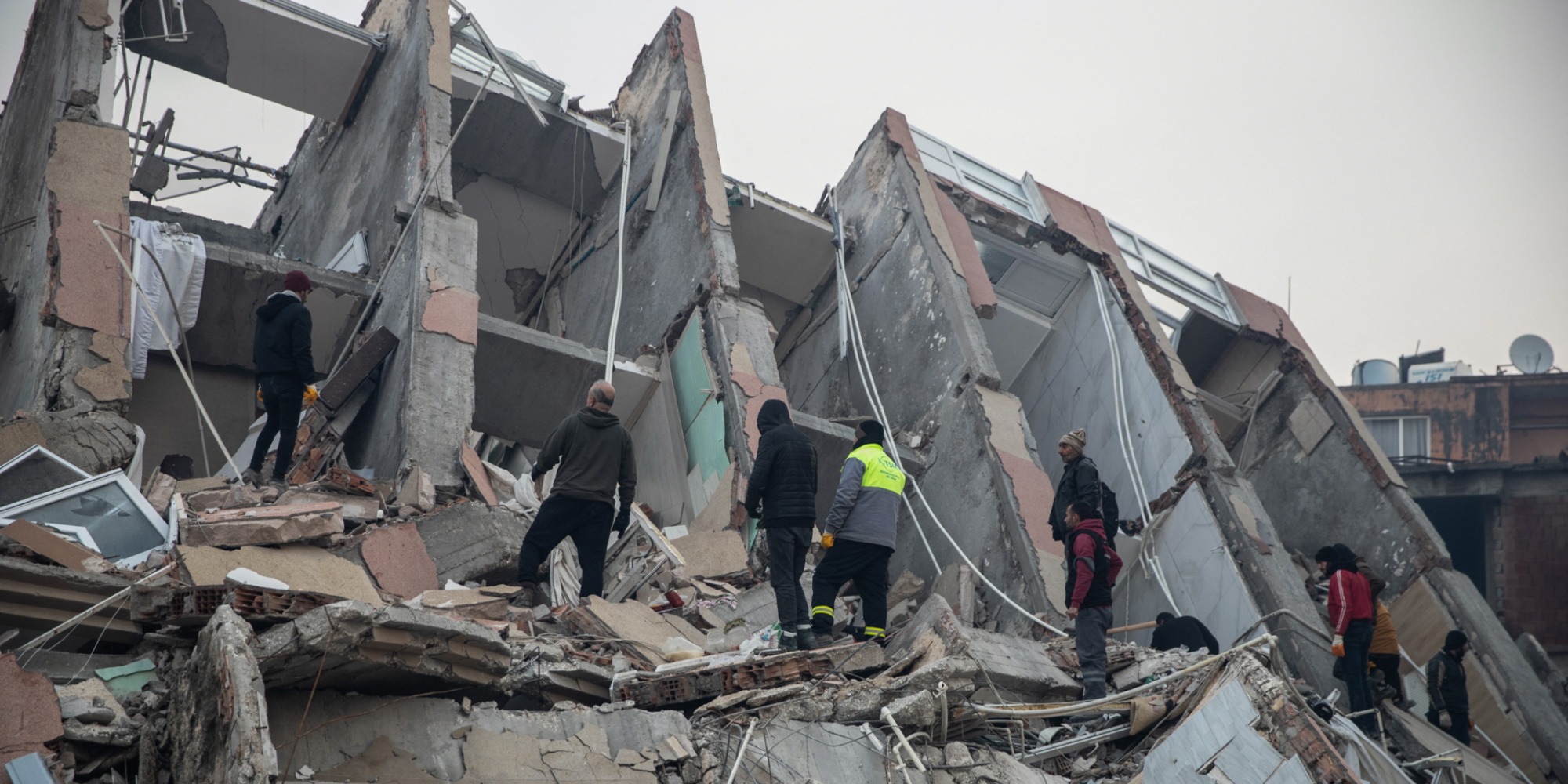Rémi Trieau (in Antioch) with AFP 9:16 a.m., February 10, 2023, modified at 9:17 a.m., February 10, 2023
Hopes of finding more survivors dwindled on Friday in Turkey and Syria, some 100 hours after the violent earthquake that killed more than 21,700 people in one of the worst disasters in the region for a century.
The WHO is now alert to the risk of a cholera epidemic.
Five days after the earthquake, a first aid convoy made up of six trucks was able to enter the rebel areas of northwestern Syria from Turkey on Thursday through the Bab al-Hawa border post.
The convoy, made up of six trucks carrying blankets, mattresses, tents, relief materials and solar lamps should cover the needs of at least 5,000 people, according to the International Organization for Migration (IOM).
Disrupted delivery
The organization of the White Helmets, rescue workers who operate in Syrian rebel areas, however expressed its "disappointment", considering that this aid was "routine" and not specific to the search for survivors under the rubble.
Almost all of the humanitarian aid destined for the rebel areas is sent from Turkey through the Bab al-Hawa crossing, the only one currently guaranteed by the UN.
Turkish diplomacy has indicated that it is working to open two other crossing points "with the regions under the control of the government" of Damascus "for humanitarian reasons".
The UN said on Tuesday that traffic through this border post was disrupted due to damaged roads, although the cargo transshipment platform and the crossing point itself were intact.
For his part, the director general of the WHO, Tedros Adhanom Ghebreyesus, announced on Thursday that he was "on his way to Syria", while the president of the International Committee of the Red Cross (ICRC), Mirjana Spoljaric announced on Thursday evening, on Twitter, of his arrival in Aleppo, Syria, stressing that "communities struggling after years of fierce fighting are now paralyzed by the earthquake".
>> READ ALSO -
Earthquake in Turkey: survivors begin to bury the dead in cemeteries
"Delivered to Ourselves"
On both sides of the border, thousands of homes were destroyed.
Rescuers are stepping up their efforts to search for survivors, even though the crucial first 72-hour window to find survivors has closed, with the situation further aggravated by freezing cold.
After several days of helpless waiting, the 130 rescuers dispatched by Qatar were able to rescue Thursday in Nurdagi, a rural town of 40,000 inhabitants located near the epicenter of the earthquake, a 12-year-old boy, alive.
Hundreds of rescue workers from Malaysia, Spain, Kazakhstan, India and elsewhere are also hard at work there.
The inhabitants, forced to live in tents or in their cars, witness in tears the comings and goings of rescuers who try to locate possible survivors using drones and thermal detection cameras.
In Antakya, a city further south destroyed by the earthquake, around thirty miners traveled a thousand kilometers to come and lend a hand.
Equipped with pickaxes, shovels, sledgehammers, hacksaws and crowbars, they try to help people trapped under a mass of concrete and scrap metal.
The slowness of relief raises questions
A backhoe is helping clear the ground, when a team leader at this Zonguldak mine, near the Black Sea, signals it to stop.
He smashes a block of concrete from which his companions evacuate the shards.
The team leader asks for a blanket.
A child has just been discovered dead in his bed.
His father leaves with the body wrapped in his arms, without a word.
Nesibe Kulubecioglu, who was able to get out of her bed alive with her daughter, lost six relatives in the earthquake, and no longer has any hope of finding them alive.
If she is full of gratitude towards the minors, she is angry with the government and denounces the slowness of relief, just like Hakan Tanriverdi, a resident of Adiyaman, a city in southern Turkey.
"We are deeply hurt that no one has supported us", plague Mr. Tanriverdi,
"I didn't see anyone before 2:00 p.m. on the second day of the earthquake", 34 hours after the first tremor, thunders Mehmet Yildirim.
"No state, no police, no soldiers. Shame on you! You left us on our own."
>> READ ALSO -
Earthquake in Turkey and Syria: is mainland France safe from such a disaster?
Cholera risk
According to the latest official reports, the earthquake, with a magnitude of 7.8, followed by more than a hundred tremors, killed at least 21,719 people, including 18,342 in Turkey and 3,377 in Syria.
The WHO estimates that 23 million people are "potentially exposed, including around five million vulnerable people" and fears a major health crisis that would cause even more damage than the earthquake.
Humanitarian organizations are particularly worried about the spread of the cholera epidemic, which has reappeared in Syria.
The EU sent first aid to Turkey hours after the quake on Monday.
But it initially offered only minimal aid to Syria through existing humanitarian programs, due to international sanctions in place since the civil war began in 2011.
On Wednesday, Damascus officially requested EU assistance and the Commission asked member states to respond favorably to this request.
European Commissioner Janez Lenarcic, coordinator of EU assistance, was in Gaziantep, in southeastern Turkey, on Thursday to meet Turkish officials but also humanitarian organizations active in northwestern Syria, the commission said.

